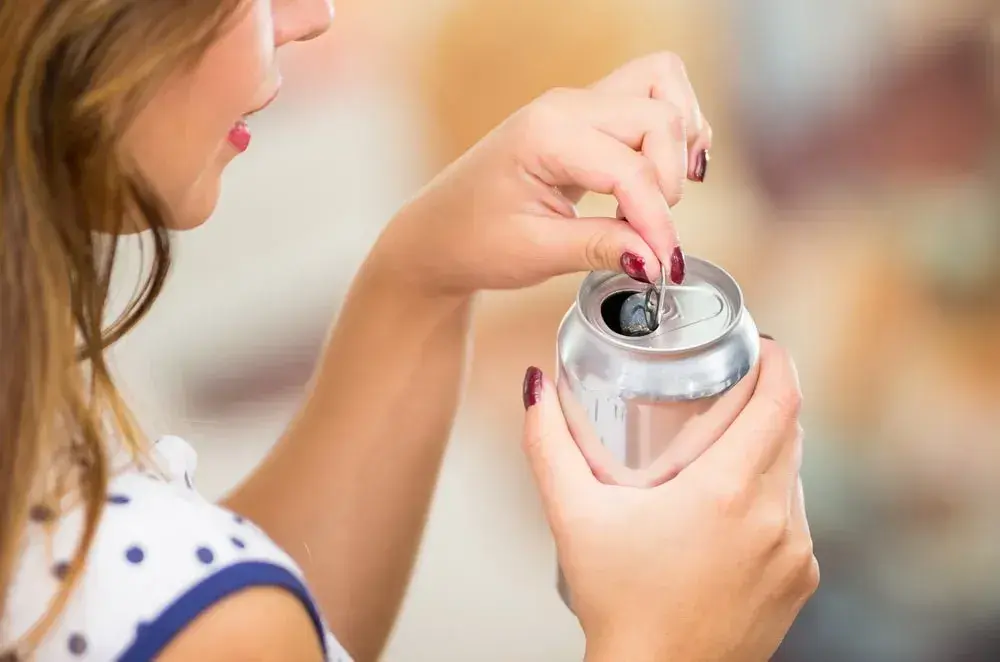6 min read
How Much Caffeine Is Too Much? (And 7 Reasons To Cut Back)
Garcia Weight Loss
:
Mar 26, 2019 12:00:00 AM

/assets/images/provider/photos/2579848.jpg)
Are you addicted to caffeine? These days, it’s common to joke about how we need our venti cappuccino before we can fully function in the morning, or a 3pm soda to make it through the rest of the day. At certain levels, caffeine can be helpful. But drinking too much can be detrimental to your health. So how much caffeine is too much?
Caffeine is a stimulant, or a substance that increases the body’s alertness and nerve activity. Millions of people consume small to moderate amounts of it every day without any ill effects.
But, caffeine may not be right for everyone. And in some cases, you may benefit from cutting back on your morning jolt.
You don’t have to quit your beloved coffee or tea completely to experience health benefits. You may find that a small to moderate amount is all you need to get your morning pick-me-up, and that consuming less caffeine actually helps you remain focused and energetic — rather than the other way around.
How much caffeine is safe?
The Food and Drug Administration (FDA) says 400 mg of caffeine a day is considered safe. This is the equivalent of four to five average 8-ounce cups of coffee. People who stick to this amount generally do not experience dangerous health effects.
Keep in mind, however, that your cup of coffee could contain more or less caffeine than what you expect. The FDA says an 8 oz coffee generally has 80 to 100 mg of caffeine, but this is just an estimate. Some cups of joe will run 135 milligrams. The type of beans used, how it was brewed, and other factors can influence the caffeine content.
You don’t have to drink coffee to get a caffeine kick. Black and green teas, soda, and energy drinks contain caffeine. Certain supplements and foods also contain it.
If you don’t know how much caffeine you’re getting, you could inadvertently go over the safe limit. For instance, some energy drinks contain up to 250 mg of caffeine in just 8 ounces. That means two energy drinks could send you over the FDA’s safe limit.
Caffeine can be toxic in high amounts. Reports of seizures and toxicity occur at 1,200 milligrams. And, some concentrated caffeine products contain excessive amounts that could be dangerous. One teaspoon of pure powdered caffeine can be the equivalent of 28 cups of coffee — an amount that can cause serious health problems and even death.
Should you cut back on caffeine?
Even if you’re not consuming amounts over the safe limit, you may find that your health improves if you scale back on caffeine just a bit.
The side effects of caffeine go beyond the obvious “jitters” that someone may get when they’ve had a few too many cups of coffee. Sometimes the effects are subtle, and people don’t realize that it’s caffeine causing their issues.
Consider cutting back on caffeine if you have any of the following health issues:
1. You have anxiety
The stimulant effect of caffeine can aggravate anxiety. This is because caffeine causes a rush of hormones, including adrenaline, that are similar to those you feel when you are anxious. In small amounts, this is not a problem. But people who are susceptible to anxiety may find it bothersome.
If you’ve been diagnosed with anxiety, have a family history of it, or suspect that you might have it, try cutting back on caffeine. If this doesn’t help, see a medical professional. Anxiety is a medical condition that can be treated and managed.
2. You don’t sleep well
Sleep is one of the cornerstones of good health. Quality sleep for at least seven hours a night lowers your risk of heart problems, Alzheimer’s disease, and weight gain.
Unfortunately, caffeine can be sleep enemy number one because it blocks sleep-inducing chemicals in the brain. And even if you had that cup of coffee hours ago, it could still be affecting you. The average half-life of caffeine is four to six hours. This is the amount of time it takes for the body to eliminate half of it. So, even 12 hours after your last sip, your body may still be getting rid of some of that caffeine.
Many people struggle to fall asleep at night or get good quality sleep, not realizing that it’s simply due to an afternoon or evening cup of coffee or tea. If your sleep isn’t good, be mindful of when you consume caffeine. Try sticking to AM hours only, or stopping all caffeine at least ten hours before you go to bed.
Using caffeine to “stay awake” when you’re sleep deprived can lead to a vicious cycle: You wake up after a poor night’s sleep. You drink a few cups of coffee to get through your day. You go to bed with caffeine in your system and have a poor night’s sleep. Repeat.
3. You feel jittery or nervous when you shouldn’t
Sure, it’s normal to feel your heart thumping before you give a big presentation. But if you notice that your jitters are frequently getting the best of you, caffeine may be to blame.
Even people who do not have anxiety may find that nervousness gets the better of them when they’ve had a few cups of coffee. This is largely due to how sensitive you are to caffeine’s effects. Some people can tolerate a few cups of coffee without issue, while others start to feel like a nervous wreck after just one cup. A DNA test can tell you how quickly your body metabolizes caffeine.
In most cases, this issue can be resolved by gradually cutting back on the amount of caffeine you consume until you’ve found an amount that doesn’t make you feel nervous.
4. You get regular migraine headaches
Caffeine has a complex and confusing relationship with headaches. You may have noticed that caffeine can help get rid of a mild headache. It’s even included in many headache medicines.
Migraine headaches are a different story, however. People who use caffeine every day, particularly those who get regular migraines, can actually suffer rebound headaches after they consume caffeine, according to the National Headache Foundation. This means that when the caffeine wears off, it can trigger a migraine in susceptible people.
If you get migraines, talk to a doctor about your caffeine consumption and treatment options.
5. You have stomach or digestive issues
If you ever feel queasy after having an espresso, or find that your heartburn acts up after drinking coffee, you might benefit from less caffeine. Caffeine can irritate the digestive tract, causing nausea or reflux. People who have ulcers may be told to avoid caffeinated drinks, especially coffee.
6. You feel like you need to urinate frequently
Millions of Americans have overactive bladder, which is a sudden urge to urinate that is hard to control. It may or may not be accompanied by bladder leakage.
Studies show that the urge to urinate and the frequency of these urges can be worsened by caffeine. If bladder problems are plaguing you, try reducing or cutting out caffeine. If bladder problems continue, talk to a doctor. Sometimes exercises or medications can help.
7. You take certain medications or supplements
Caffeine can interact with nearly 100 medications. Not all of these interactions are life-threatening, but if you take any medications or supplements regularly, check with your doctor or pharmacist about whether they are safe to take with caffeine.
For instance, some cold and allergy medicines that contain pseudoephedrine can magnify the stimulant effects of caffeine. Echinacea, an herbal supplement that is used to prevent colds, may also increase the amount of caffeine in your system.
Cutting back the right way
So, perhaps you’ve decided that you’d like to consume less caffeine due to the health problems listed above. Great!
Many people try — and fail — to cut back on their caffeine habit because they do too much, too quickly. If your body is used to several cups of coffee per day, abruptly cutting down to one or two is probably going to create uncomfortable withdrawal symptoms, including:
- Fatigue
- Difficulty concentrating
- Headaches
- Irritability
You can avoid withdrawal symptoms by cutting back a little at a time. Start by omitting one cup — or even just half a cup — of coffee or soda. Wait about a week before cutting back another half cup, and so on. You can also mix decaf coffee or soda in with regular to make your own “half-caff.”
Healthy sources of caffeine in moderation
If you are going to enjoy moderate, safe amounts of caffeine, make sure you’re getting it from a healthy source. Skip the sugary sodas and energy drinks that contain sugar or unhealthy chemicals. And, caffeine supplements in powder or liquid form are not recommended, as they usually contain such high amounts of caffeine that overdose is possible.
Tea is a great source of antioxidants and is usually lower in caffeine than coffee and energy drinks. Black, green, matcha, and white teas have health benefits and contain 0 calories.
The classic cup of coffee also doesn’t have to be the enemy. Coffee also contains antioxidants and may reduce the risk of depression. Try a splash of unsweetened almond or coconut milk with a healthy sugar substitute if you don’t enjoy it black.
Getting healthier is a journey that requires hard work — but you don’t have to face it on your own. If you want to lose weight or get healthier, we can help! Contact Garcia Weight Loss and Wellness Centers to schedule your no-cost consultation today!



